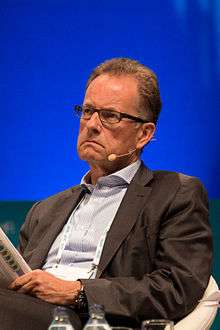United Nations Office at Geneva


The United Nations Office at Geneva (UNOG) is the second-largest of the four major office sites of the United Nations (second to the United Nations Headquarters in New York City). It is located in the Palais des Nations building constructed for the League of Nations between 1929 and 1938 at Geneva in Switzerland, and expanded in the early 1950s and late 1960s.
Besides United Nations administration, it also hosts the offices for a number of programmes and funds such as the United Nations Conference on Trade and Development (UNCTAD), the United Nations Office for the Coordination of Humanitarian Affairs (OCHA) and the United Nations Economic Commission for Europe (ECE).
The United Nations and its specialized agencies, programmes and funds may have other offices or functions hosted outside the Palais des Nations, normally in office spaces provided by the Swiss Government.
UN specialized agencies and other UN entities with offices in Geneva hold bi-weekly briefings at the Palais des Nations, organized by the United Nations Information Service at Geneva.
Constituent agencies
Headquartered at Geneva:
- Conference on Disarmament
- International Bureau of Education
- International Computing Centre
- International Labour Organization
- International Trade Centre
- International Telecommunication Union
- Joint Inspection Unit
- Joint United Nations Programme on HIV/AIDS
- Office of the United Nations High Commissioner for Human Rights
- United Nations Chief Executives Board for Coordination
- United Nations Compensation Commission
- United Nations Conference on Trade and Development
- United Nations Economic Commission for Europe
- United Nations High Commissioner for Refugees
- United Nations Human Rights Council (see also United Nations Commission on Human Rights)
- United Nations Institute for Disarmament Research
- United Nations Institute for Training and Research
- United Nations Non-Governmental Liaison Service
- United Nations Office for the Coordination of Humanitarian Affairs
- United Nations Office on Sport for Development and Peace
- United Nations Research Institute For Social Development
- World Health Organization
- World Intellectual Property Organization
- World Meteorological Organization
Presence at Geneva:
- International Atomic Energy Agency (headquarters are in Vienna)
- United Nations Environment Programme (headquarters are in Nairobi)
- United Nations Educational, Scientific and Cultural Organization (headquarters are in Paris)
- United Nations Industrial Development Organization (headquarters are in Vienna)
- World Food Programme (headquarters are in Rome)
Directors-General

- Wladimir Moderow, Poland 1946–1951
- J. Franclin Ray, USA 1952
- Sir Arthur Rucker, UK 1953
- Adriannus Pelt, Netherlands 1954–1957
- Pier Pasquale Spinelli, Italy 1957–1968
- Vittorio Winspeare-Guicciardi, Italy 1968–1978
- Luigi Cottafavi, Italy 1978–1983
- Eric Suy, Belgium 1983–1987
- Jan Mårtenson, Sweden 1987–1992
- Antoine Blanca, France 1992–1993
- Vladimir Petrovsky, Russia 1993–2002
- Sergei Ordzhonikidze, Russia 2002–2011
- Kassym-Jomart Tokayev, Kazakhstan 2011–2013
- Michael Møller, Denmark 2013–present[2]
Administrative history
- United Nations Geneva Office, from beginning, Aug 1946 – Apr 1947, (IC/Geneva/1)[3]
- European Office of the UN, 11 Apr 1947 – 10 Aug 1948, (IC/Geneva/49)[4]
- United Nations Office at Geneva, 10 Aug 1948 – 9 Aug 1949, (IC/Geneva/152)
- European Office of the UN, 9 Aug 1949 – 8 Dec 1957, (SGB/82/Rev.1)
- United Nations Office at Geneva, 8 December 1957 – present, (SGB/82/Rev.2)
See also
- Headquarters of the United Nations
- United Nations Information Service at Geneva
- United Nations Office at Vienna
- United Nations Office at Nairobi
- Outline of the United Nations
- List of United Nations organizations by location
- List of international organizations based in Geneva
References
- ↑ (French) Simon Petite, "Rénovation du Palais des Nations : vote crucial", Le Temps, Monday 23 December 2013, p. 5.
- ↑ "The Director-General". United Nations Office at Geneva. Retrieved 27 November 2013.
- ↑ UNOG Archives (1946). G II A −10/2/6 -1435. UNOG.
- ↑ UNOG Archives (1947). G II A −10/2/6 -1435. UNOG.
Bibliography
- Joëlle Kuntz, Geneva and the call of internationalism. A history, éditions Zoé, 2011, 96 pages (ISBN 978-2-88182-855-3).
External links
| Wikimedia Commons has media related to UN Campus (Geneva). |
Coordinates: 46°13′36″N 6°8′26″E / 46.22667°N 6.14056°E